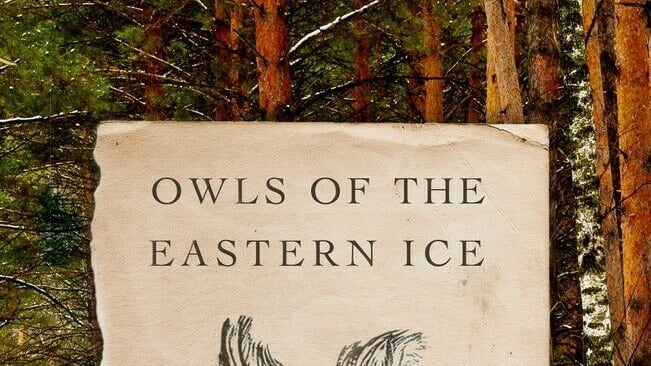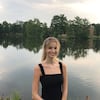At the beginning of the year, this column was dedicated to the literary event scene in Portland, rounding up the important authors who would come to our bookstores and read from their latest work, shaking hands with strangers and then traveling to the next closest bookstore.
In March, those meet-and-greets stopped being possible. But at the same time, the actual act of reading became extremely possible. Since then, this section has been dedicated to book recommendations of all sorts––books about athletes, books about our city, books to take you out of or further into the moment.
That measures out to about 250 books recommended, which feels like an unhinged project in the best of years. Some writing is good, maybe even great, but forgotten about as soon as it's done. Other writing is read without much thought and then lodges itself in your brain for months afterward.
This list is about the latter.
The Topeka School, Ben Lerner
Ben Lerner was the child of therapists. Brought up in Topeka, Kansas, he learned how to spin arguments out of fragments through high school debate competitions. His novel, The Topeka School, is about most of the same things and aims to preserve the '90s in its political context—before the shooting at Columbine, suspended in the Bill Clinton presidency, and standing at the gates of a collapse of civility. It is not a book to ever read twice, but you get the sense that few have had the interest or ability to write about male pride with the same critical awareness.
Owls of the Eastern Ice, Jonathan Slaght
There is no reason to come into Owls of the Eastern Ice with an interest in field research. In fact, if it is your area of expertise, this recommendation can be disregarded. There might be all sorts of holes in the science and I wouldn't know or care. It is an experience of a book. Author Jonathan Slaght brings the reader into his niche, self-contained world of bird conservation, which is more thrilling than anyone could guess. For a field scientist, Slaght turned out to be a writer's writer, and it is a gift to read about a man whose life's purpose is to find one really big bird.
Betty, Tiffany McDaniel
The first line of Tiffany McDaniel's second novel is pretty bad: "I'm still a child, only as tall as my father's shotgun." No one would be blamed for moving on to a different book with a similarly beautiful cover. But it would be a shame, because the novel is a gem, a fictionalized account of the author's family history that can feel both lovely and unbearable to read. Set in the foothills of the Appalachian Mountains, Betty is about the margins of life in midcentury rural America, made real and close by McDaniel's proximity to those who lived there.
Savage Appetites, Rachel Monroe
As someone who does not read true crime, I don't think you need to appreciate the genre to enjoy Rachel Monroe's debut novel. Monroe does all of the appreciation for you, and then some, as she links four different archetypes to four different stories of women and crime. The violence is the least interesting part of the book—Monroe is a master at breaking down cultural trends and implicating herself in the process, looking for answers why we obsess over women killers and the lives that bring them to a breaking point.
"Witness and Respair," Jesmyn Ward
For the September issue of Vanity Fair, Jesmyn Ward published a personal essay that read like an autopsy of grief. Just months earlier, she had lost her husband to COVID-19, and it takes some kind of writer to bottle tragedy as it happens and create something beautiful and big. There is writing—sometimes good writing—in which you can see the author thinking, processing and whittling down. This essay feels as if it could be a first draft from someone who writes prose by default, published for the rest of us as a matter of generosity.
"Mrs. Meyer's," Alexandra Molotkow
I have a hard time believing this essay for Real Life magazine would have been published outside of quarantine. To get through it, you have to admit to yourself that you're reading an intellectualized takedown of that one brand of hand soap—you know the one—and that in itself is a tough pill. But I now know that Mrs. Meyer was Thelma Meyer, and she was from Iowa, and she had nine children and, according to Alexandra Molotkow, her brand stands for "unalienated labor" and suburban pipe dreams of ethical consumerism. I didn't need to remember this, but I have since I read it.
"A Small Needful Fact," Ross Gay
Gay published this poem five years ago after Eric Garner died at the hands of police in Staten Island. It gained a second life this past summer when police in Minneapolis killed George Floyd, and it manages, in just a few lines, to express something terrible and hopeful in the wake of violent injustice. Last year, Gay published the collection The Book of Delights, which is every bit as good, and I hope that "A Small Needful Fact" brings readers to it.
"My Heart Broke. Now What?" John Paul Brammer
The year had barely started when this entry in John Paul Brammer's online advice column, ¡Hola Papi!, came out, at a time when a reasonable person could still think the worst thing in the world was heartbreak. I read it and bookmarked it, and then read it three months later, six months later, nine months later. It is a testament to Brammer's skill that if you read the advice enough times, it seems both dumb and obvious, but then there is another sadness of a different kind and his words feel inspired all over again.
"An Open Letter to Everyone Asking Why I Always Come Back to Oklahoma," Patricia Liu
Patricia Liu is still at the egg stage of her career, having published only a handful of poems. But you wouldn't know it from reading her. It's probably true that hometown elegies will almost always mean more to the writer than to the reader, but Liu writes about Oklahoma like she wants to share it—the love she has for the land and the people stretches through the prose and reminds us of all of the places we come from. "Oklahoma does not have to prove itself to me," she writes. But it does anyway.
"The Subway Crush Who Crushed Me," Zoe Fishman
I would like to think this year gave everyone permission to embrace sentimentality. This essay for The New York Times' Modern Love series was published last December, but sometimes you stumble upon things on the internet for good reason. Novelist Zoe Fishman memorializes her late husband in a classical love story, and it reads as completely improbable until you remember that you know lots of people who have improbable life stories. They just don't know how to write them with Fishman's grace and care.

